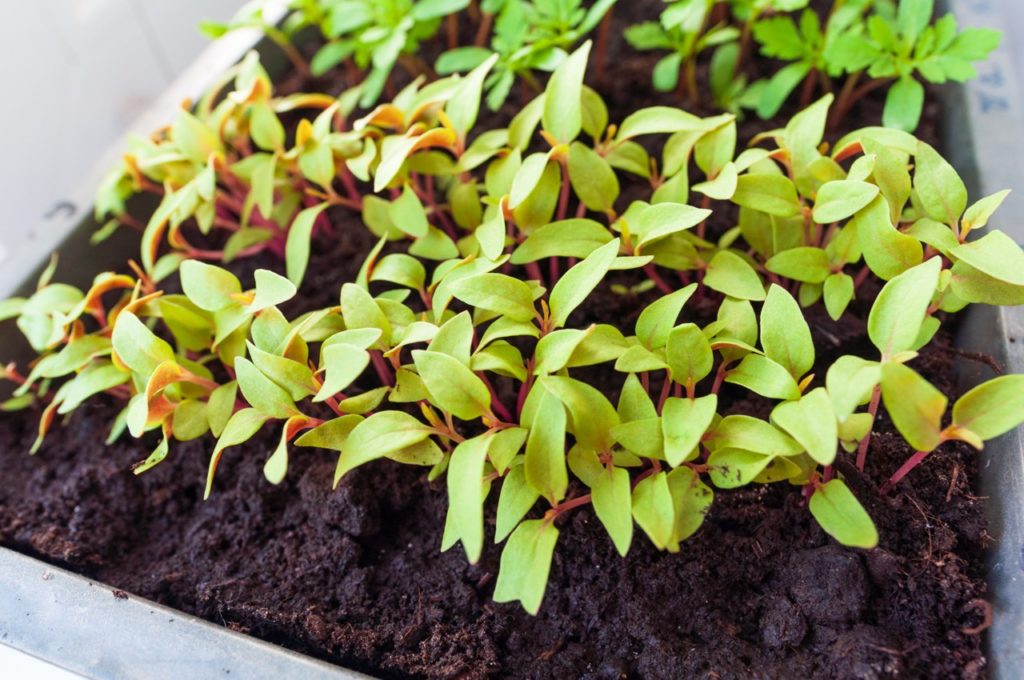ANNUALS > CELOSIA > inseminate
IN THIS GUIDE
CELOSIA GUIDES

Container GrowingIndoors GrowingSowing
Celosia , or ‘ Cockscomb ’ , is a sheer and vivacious plant used to bring a splatter of colour to gardens .
This plant is n’t dispute to spring up from seed and doing so is actually a authentic style to enliven up your garden .

As an yearly plant , this is a cognitive operation that will need to be done each class – as the plant endure out its entire lifecycle ( sprouting to setting germ ) within a one - class timeframe .
Here ’s a abbreviated overview of the process :
Let ’s take a look in a little more depth .

When To Sow Celosia
In the UK you ’ll need to inseminate your genus Celosia seeds indoors for them to grow to a sufficient size of it within the class .
February through to April is plausibly the best time to do this .
1) Sow Cockscomb Seeds
The first step is to constitute your seed in compost .
set out a stratum of compost to make full the deepness of a seed tray , then conjure the seeds lightly onto the control surface and just cover with either compost or vermiculite .
For best results choose a seed - starting compost , as this has the right balance of nutrient to facilitate levelheaded ontogenesis .

“ As Celosia seeds can be susceptible to fungal infections , it ’s important to ensure equipment include the seed tray is clean before starting and the seedlings are not over - watered and allowed to dry out between waterings , ” says Roy Nicol , Master Horticulturist .
2) Provide The Right Care
Seeds call for term to be just ripe to grow big and secure , which is one of the chief reason for engraft them indoors .
It ’s much easier to manipulate temperature and wet storey in spite of appearance .
For good outcome , keep the temperature between 15 - 20 ° century as consistently as possible .

A heated propagator can help to achieve desired results .
Use a spray bottle to spritz the top bed of soil every other twenty-four hour period , as this will keep the wet grade in the right range .
3) Transplant Seedlings
When your seedlings are starting to become established you ’ll want to thin them out a little to give them space to turn .
Keeping them bunched up will stymie their ability to thrive and will reduce the final size of your Celosia , as well as create ideal conditions for ‘ damping off ’ .
cook another semen tray by putting out a layer of compost , then gently move the seedlings out of the first tray .

Leave a gap of 5 centimeter between each seedling in this fresh one so they have space to grow .
4) Harden Off
Hardening off assure that your seedling are ready for the harsher conditions in the outdoors of the UK .
Skip this footstep at your peril , as a seedling that has n’t been indurate off is more probable to conk when you plant it out .
Be aware that hardening off can take a couple of weeks , so ensure to comprise this footmark into your daily schedule .
I ’d commend making a note of it somewhere , either in your garden planning book or a calendar .
allow for the tray of seedling outdoors for a couple of hours during the day , in a sheltered and umbrageous spot .
Bring them indoors again that dark .
take over this for a few days , extending the time spent outside for an hour or so each day .
5) Plant Outdoors
When your seedling are fully established and hardened off , it ’s time to found them out .
belated May or rather June ( well after the last frost ) is the best sentence of year for this .
Plant out into beds or containers of well - irrigate , well - drain compost .
Leave a gap of at least 20 cm between each young plant to ensure the adult plant has plenitude of space to mature big and strong .
Keep your seedlings well - watered as they develop .
Celosia will be in blush from June through October , giving you a pastiche of people of color to enjoy in the summertime months .